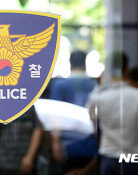S. Korea’s diplomatic capabilities to be tested with G7-plus meeting invitation
S. Korea’s diplomatic capabilities to be tested with G7-plus meeting invitation
Posted June. 03, 2020 07:33,
Updated June. 03, 2020 07:33
South Korean President Moon Jae-in gladly accepted the invitation of U.S. President Donald Trump to join the G7-plus meeting. President Trump repeatedly mentioned during the phone conversation with his South Korean counterpart on Monday that the G7 is an outdated system and ways to expand it are being explored. “Once President Moon successfully visits the U.S., South Korea may become an official member of the G11 or G12, rather than a temporarily participating observer,” said a member of the presidential office Cheong Wa Dae.
South Korea’s participation of the G7-plus seems likely to be realized with President Trump’s invitation and President Moon’s acceptance. Specific schedule and format have not been decided due to the COVID-19 pandemic, but President Moon will join the meeting with a status higher than an observer as he has received an invitation from the U.S., the chair country of this year’s G7. South Korea, as the 10th-largest economy of the world, will obtain its rightful status.
To become an official member of the G7, of course, requires an agreement among existing member countries. However, Japan may be hesitant to allow South Korea while European countries will not easily agree with the rejoining of Russia after its removal from the G7 due to its attacks on Ukraine. Furthermore, President Trump’s invitation to South Korea is regarded as a “diplomatic show” for the upcoming U.S. presidential election in November. In particular, it is a huge burden for South Korea to join the G7 now as it can look like the country is siding with an anti-China coalition that the U.S. has been building recently.
Despite the above, South Korea’s participation of the G7 can enable the country to have a stronger voice and become a major player from a previously quiet bystander in the international community. The South Korean government, which is working for Chinese President Xi Jinping to visit South Korea sometime this year, can play the mediation role between the U.S. and China in the future of the new cold war. The South Korean government also seems to approach it as an opportunity to resume denuclearization talks with North Korea.
The problem is whether Seoul has the diplomatic capabilities needed to support such expectations. The recent conflicts between the U.S. and China reflect counterattacks by the U.S. to reorganize the existing international orders against China’s fast rise. Participation in the G7-plus and President Xi’s future visit are both the opportunities and risks to South Korea as the country may be swept into the U.S.-China conflicts and cause only misunderstanding and distrust with immature and slow diplomacy.
There is no opportunity without risk. Reducing risks and achieving practical gains with nimble and flexible responses are the essence of diplomatic capabilities. South Korea has been hiding behind “strategic ambiguity” due to the North Korean issues, even hesitating to speak on principles, such as international cooperation, peace, and human rights. It cannot become a major player on the international stage with “quiet diplomacy.” Now, the country will face a true test of diplomacy.







